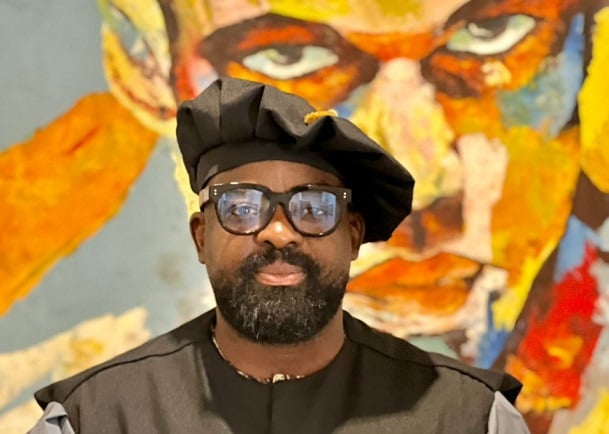Kunle Afolayan has blamed what he described as internal politics within the Nigeria Official Selection Committee (NOSC) for the country’s non-submission of a film entry ahead of the 2023 Oscars.
The NOSC is tasked with ensuring that the entry to represent Nigeria in the international feature film (IFF) category of the Oscars meets all eligibility rules and technical requirements to compete.
After making significant inroads in 2021 with ‘Milkmaid’ and being dropped from the first shortlist, Nigeria’s film industry didn’t emerge at all to vie in the 94th edition as NOSC filed that none of its options were good enough.
In September ahead of 2023, NOSC failed again to submit a film, a situation that filmmakers have attributed to the introduction of a “no film eligible” category in the framework on which the committee’s internal voting is based.
Chaired by Chineze Anyaene, a 15-member committee of the NOSC had voted on September 3.
The NOSC subsequently submitted results to the Academy of Motion Picture Arts and Sciences (AMPAS).
This move has since caused tension in the NOSC, culminating in the resignation of some committee members.
Among the top entries that made it to the final process of selection and were voted on are the late Biyi Bandele’s film ‘Eleshin Oba’, Afolayan’s ‘Anikulapo’, and Femi Adebayo’s ‘King of Thieves’.
In an interview on Channels TV, Afolayan said he had reached out to NOSC a year before his film was entered.
He said he had ensured his film met IFF requirements, forgoing Netflix exclusivity so he could enter the Oscars.
Afolayan opined that NOSC’s judgment about eligibility became flawed and exposed to internal politicking.
“Last year when they said no film was eligible. Did they mean they were not good enough? That was what I was not clear about. So I reached out, asking that they send the parameters to us. We ensured that we met them,” he said.
“Anikulapo was supposed to be exclusive to just Netflix. We were not supposed to do the cinema run. But because Netflix would also like for us to submit, they gave a bit of a window.
“One of the conditions for the Oscars is doing at least seven days in the cinema before Netflix release or the same day as the Netflix release. We met all conditions.
“The 15-man team voted. Why would eight out of 15 members say no film is eligible? Up till now, NOSC hasn’t come out to explain the meaning of ‘no film is eligible’. They wrote to us to say we didn’t have enough votes.
“It’s a shame because this is the first time we’re having this quality of films. We have ‘Elesin Oba’, ‘King of Thieves’, and ‘Anikulapo’. These are three epic films that could have represented the country. I don’t know.
“[AMPAS] needs to change and not put our fates in the hands of a few colleagues, because they are our colleagues.
“It could be [a case of] ‘how can it be him? Won’t I do a film next year‘. If you got 10 of the members as filmmakers or directors like us, and some of the directors happen to work for some of the competing films, it’s a mess.”
During the voting, NOSC’s 15-member committee reached an 8-5-1-1 pattern, the majority saying no film is eligible.
Responding to critics that called for her resignation over the Oscar controversy, Anyaene earlier said: “It will make more sense if criticisms [of NOSC’s verdict] are factual with some levels of logical reasoning.
“Calling for my resignation simply because the committee voted based on using the IFF requirements and I have to uphold the committee voting outcome is simply baseless.”
Copyright 2025 TheCable. All rights reserved. This material, and other digital content on this website, may not be reproduced, published, broadcast, rewritten or redistributed in whole or in part without prior express written permission from TheCable.
Follow us on twitter @Thecablestyle

